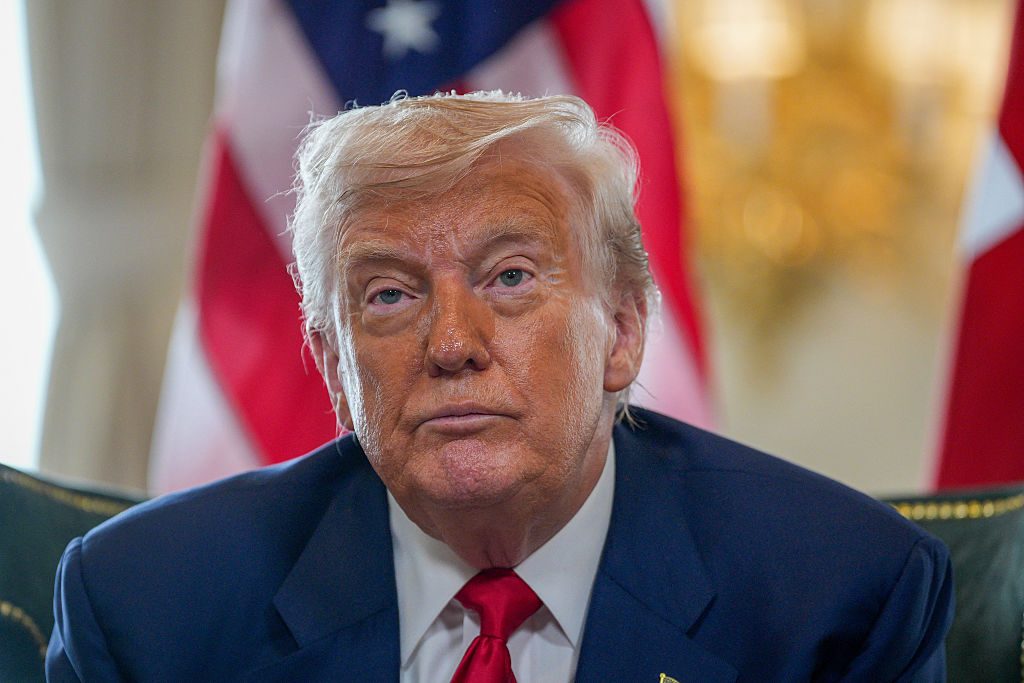“America is the hottest country anywhere in the world,” at least according to President Trump. But, as so often with the administration’s stances and rhetoric, there is an unspoken tension arising from the fundamentally contradictory character of his coalition. The MAGA base remains wedded to populist goals such as punishing elites and restoring working-class fortunes. Yet it is the elite upper echelons of Wall Street and Silicon Valley which are calling the shots on policy and reaping the bulk of the material benefits of the Trump II programme, with its combination of tariffs and tax cuts. UK
A report from the Financial Times looks at just how skewed the distribution of rewards is: “The 10 biggest stocks on the S&P 500 account for one-third of overall profits across the index, with tech and financials reporting […] earnings growth of 41 percent and 12.8 percent, respectively.” This may sound like great news, but these are precisely the frictionless industries that dominated and warped the economy in the pre-Trump neoliberal era, also known as the “economy of bits”; their obsession with short-term gains and stock performance has not helped the quest for productive investment.
Indeed, when it comes to the “economy of atoms” — the physical industries most directly involved in the regeneration of manufacturing, and which tend to be where working-class jobs are created — the effects of Trump’s policies are much less salutary. “Carmakers, airlines and companies manufacturing household durables such as refrigerators and washing machines were already under pressure, and have reported the largest downward revisions to net income,” the FT details. What’s more, “earnings for consumer staples and materials companies are down 0.1 percent and 5 percent year on year.” The desperate firing of the Bureau of Labour Statistics chief on Friday over mediocre job numbers also doesn’t help.
The old globalised order promised de-industrialisation but paired it with cheap goods. The new protectionist paradigm theoretically offers to bring factories back to US shores, but with consumers having to bear some of the cost in the form of higher prices on locally made goods. By allowing capital to be sucked into tech and finance at the expense of the real economy while consumers face rising costs behind newly erected tariff walls, Trump’s policies are delivering the worst of both worlds.
As with previous successful episodes of industrial growth, the administration should build new institutions which proactively steer private and public investment, such as development and infrastructure banks — 21st-century versions of Hamilton’s National Bank or Roosevelt’s Reconstruction Finance Corporation — rather than giving oligarchs carte blanche to hoard yet more of the nation’s wealth. Historically, tariffs have only ever worked as supplements to larger strategies and not as standalone or cure-all devices.
This brings us to the question of why MAGA seems so unperturbed by the administration’s craven deference to the rich and powerful. There is an interesting contrast with the Jefferey Epstein saga, perhaps the single issue where rank-and-file Trump supporters and populist influencers such as Steve Bannon are willing to draw the line. (Bannon is known to oppose the tax cuts, and to prefer tax hikes on the rich, but did not ultimately make a fuss about the tax cut-heavy One Big Beautiful Bill.)
Evidently, the MAGA impulse to “punish elites” does not carry over into actual policy matters, where the base seems more than happy to reward the billionaire class. It speaks to the deep immaturity and dysfunction of American populism that it can only focus its attention on the most lurid and sensational stories but not the substantive and structural questions that affect the US economy, or the everyday lives and material wellbeing of workers. A real populist insurgency would push for the release of the Epstein flies and call for a more aggressive corrective to financial distortions, seeing both as part of a unified attack on the abuses of an amoral elite. But for MAGA, cheap thrills and vibes appear to take precedence.











Join the discussion
Join like minded readers that support our journalism by becoming a paid subscriber
To join the discussion in the comments, become a paid subscriber.
Join like minded readers that support our journalism, read unlimited articles and enjoy other subscriber-only benefits.
Subscribe